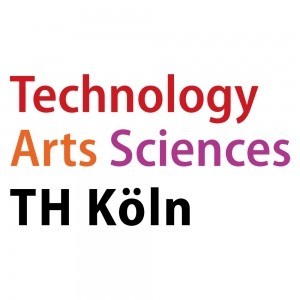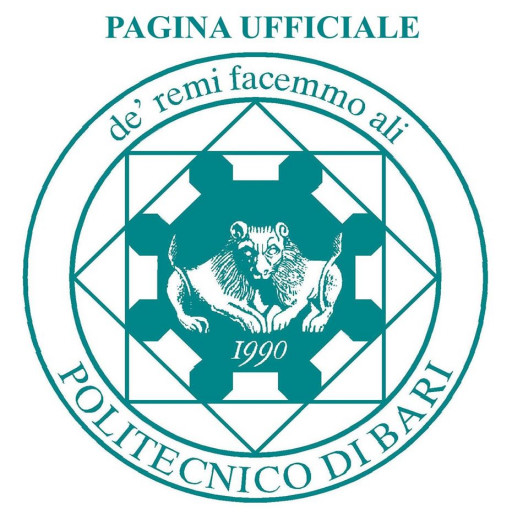Photos of university / #uni_duisburg_essen
The Master of Science in Automation and Control Engineering at the University of Duisburg-Essen offers students a comprehensive and in-depth education in the fields of automation, control systems, and embedded technologies. This programme is designed to prepare graduates for the challenges of modern industry by equipping them with advanced knowledge and practical skills in automation processes, control engineering, robotics, and intelligent systems. The curriculum covers fundamental topics such as digital control, measurement technology, process automation, and industrial automation systems, as well as specialized areas including mechatronics, automation during manufacturing processes, and cyber-physical systems.
Students will have the opportunity to deepen their understanding through a combination of theoretical coursework and practical project work. The programme emphasizes the development of problem-solving skills, technical innovation, and analytical thinking, enabling graduates to effectively design, analyze, and optimize complex automation systems across various sectors such as manufacturing, energy, transportation, and building automation. Moreover, the programme fosters interdisciplinary collaboration, reflecting the interconnected nature of automation technology with fields like computer science, electrical engineering, and mechanical engineering.
The University of Duisburg-Essen’s extensive network with industry partners ensures that students gain real-world insights and hands-on experience through internships, project work, and collaborations with leading companies. The international orientation of the programme also prepares students for careers worldwide, with a focus on innovative solutions and sustainable development. Graduates of this programme are well-positioned for careers as automation engineers, control system developers, robotics specialists, or researchers in academia and industry. With its strong academic foundation combined with practical relevance, the Master in Automation and Control Engineering at the University of Duisburg-Essen offers an excellent pathway for students aiming to become experts in automation technology and to contribute to technological advancements in various industrial domains.
Educational organisation
The Master's degree courses consist of the following elements:- advanced theories
- core subjects
- electives
- non-technical course offer
The Master's thesis is an examination paper which concludes the scientific education in every Master's degree course within the academic International Studies in Engineering (ISE) programme. It is used to show that a student is capable of dealing with a problem from the corresponding field of engineering sciences autonomously, using scientific methods and presenting the topic comprehensibly within a given period of time. The duration for work on the Master's thesis is six months.
Study abroad unit(s)
It is obligatory for German students to stay abroad for a period of three to six months.During this time, the students can:
- participate in lectures at a foreign university and earn credits by passing the examinations, or
- work on their final thesis
Forms of assessment
According to the examination regulations, the type and duration of the examination will be defined by the lecturer before the semester starts. Therefore, an examination can be a written test of 60 to 120 minutes or an oral examination of 30 to 60 minutes. The language of the examination is the same as the language of the lecture.Course objectives
Graduates will:1) master profound knowledge of advanced principles of mathematics and become an expert in the basics;
2) develop advanced knowledge and skills in automation and control technology;
3) be qualified to integrate the areas of automation and control technology and be able to assess and apply new, complex methods for modelling, calculation, and design as well as test for criteria like effectiveness and efficiency in view of new applications;
4) be qualified to give preference between the two possible paths, either for a commercial or academic career, based on their electives chosen from the spectrum offered in the degree course;
5) benefit from an enhanced overall education with increased confidence in German or English, and profit from enhanced employability gained by learning skills in teamwork and communication;
6) gain experience in applying scientific methods to deal independently with problems of automation technology (or its application in another engineering discipline) within a specific time frame, and be able to present the issues clearly.
Language requirements
Applicants must be able to demonstrate German and English language skills corresponding to Level B1 of the Common European Framework of Reference for Languages (CEFR).At the start of the programme, students must undergo placement tests in order to determine their knowledge in both languages and be placed in the appropriate courses. Students with a language certification from a qualified institute are exempt from sitting the placement test.
During the course of the ISE Master's programme, students must work towards a level B2 certification in both German and English. Students must reach a B2 proficiency level by the time they register for the final thesis. In some individual cases, language courses are a required part of the programme.
Academic requirements
The qualification for a MSc course of study in the programme ISE is met by a student's successful completion of a related degree course of study (leading to a BSc or a comparable degree) of at least three academic years' duration in the field of natural sciences or engineering sciences or computer science. The applicant must have achieved an average grade of 2.5 or better in this course of study.Another requirement is knowledge of German and English, at least at level B1 achieved on the Common European Framework of Reference for Languages (CEFR).
Enrolment fees
All students are required to pay a social contribution of about 300 EUR per semester. The social contribution includes a semester ticket covering public transport in North Rhine-Westphalia, subsidised meals in the canteen of the university and other services.Costs of living
We recommend budgeting around 750 to 900 EUR per month for personal expenses.Job opportunities
Students may be employed as student assistants at institutes within the Department of Engineering as well as by affiliated research institutions. Companies in the region also offer similar jobs.Services and support for international students
The Support Center for (International) Engineering Students (SCIES) acts as a help desk for all study-related questions in the Department of Engineering. The mission of SCIES is to support all students at the Department of Engineering and to help them gain the most from their experience at the University of Duisburg-Essen. SCIES answers questions with regard to studies, helps in administrative matters, supports in finding accommodation, and is the first level of support for all of the students' questions.Accommodation
Accommodation is available through the Student Services Office or on the private market. Rent for a single room in a student residence is approx. 280 EUR.For more information, see: http://www.uni-due.de/scies/accommodation.shtml.









